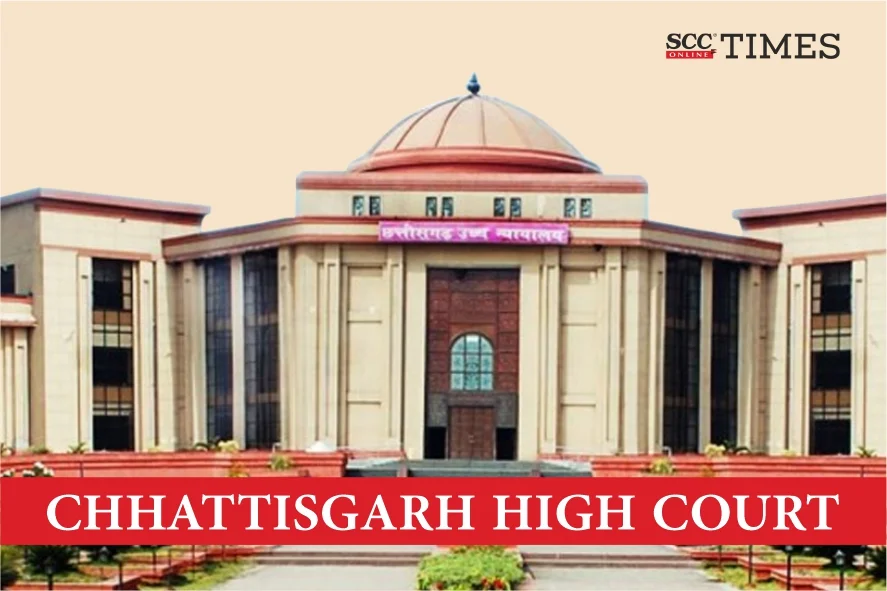Chhattisgarh High Court: In a writ petition filed against the order passed by respondent 5 – Chief Executive Officer, Janpad Panchayat Dongargaon, whereby the services of the petitioner as Gram Rojgar Sahayak (‘GRS’), Gram Panchayat Maretha Navagaon, were terminated, the Single Judge Bench of Amitendra Kishore Prasad, J., allowed the petition holding that the impugned order was passed in a very harsh manner without granting opportunity of hearing to the petitioner.
Background
In 2016, the petitioner was appointed as the GRS on a contractual basis under the Mahatma Gandhi National Rural Employment Guarantee Scheme (‘MGNREGA’). The appointment was initially for one year. Later, considering his capability and work, the respondent authorities extended his service period.
In 2022, Daleshwar Sahu, a Member of Legislative Assembly (‘MLA’), complained against the petitioner before respondent No. 4-Chief Executive Officer, Zila Panchayat, stating that the petitioner was not of good character and the other Panch and Sarpanchs had complained against him. The MLA also alleged that the petitioner did not work properly. Thus, an Investigation Committee was constituted to look into these allegations.
Subsequently, on 03-02-2023, respondent 4 issued a show-cause notice to the petitioner alleging, inter alia, that he failed to increase the number of labourers in the Gram Panchayat by accepting wage-based employment despite orders from his superiors.
On the same day, respondent 4 issued another letter informing the petitioner that a report was obtained regarding the MLA’s complaint, and the Investigation Committee had recommended his removal or transfer. Furthermore, he was called before the District Level Committee for a hearing. The petitioner contended that he was never informed about the constitution of any Investigation Committee, and no report of the said investigation was shown or provided to him, even after his request.
Again, a show-cause notice was issued by respondent 4 alleging that the petitioner had failed to achieve the targets and had underperformed.
Thereafter, citing administrative reasons, the petitioner was transferred to Gram Panchayat Dhaurabhata. The next month, vide the impugned order, respondent 5 terminated the petitioner without any inquiry into the alleged misconduct. Hence, this writ petition was filed.
Analysis and Decision
Upon perusal of the impugned stigmatic order, the Court noted that there were several allegations levelled against the petitioner claiming that he was reluctant to perform his duty and disobeyed the instructions of the respondent authorities as he failed to give 100 days’ employment to labourers. There were also allegations made by the Sarpanch as well as a criminal case registered against him.
The Court noted that due to the several allegations levelled against the petitioner, an inquiry was conducted, but nothing was found against him in the inquiry report, and the charges were not proved. Despite that, the petitioner was removed from service without conducting any inquiry, much less giving any proper opportunity of a hearing.
The Court placed reliance on Swati Priyadarshini v. State of M.P. 2024 SCC OnLine SC 2139, wherein the Supreme Court held that even for a contractual appointment if any stigmatic order is to be passed, it has to be passed after conducting a proper inquiry and after giving due opportunity of hearing to the delinquent/employee concerned. The Court also placed reliance on Digambar Chandrakar v. State of Chhattisgarh1, which was passed in line with Priyadarshini (supra).
Considering the aforesaid, the Court held that the impugned order was passed in a very harsh manner without granting the opportunity of a hearing to the petitioner. The Court reiterated that if any stigmatic order was to be passed, the foremost thing was to give a notice levelling specific allegation and holding an inquiry after giving due opportunity of hearing to the employee/delinquent. Thereafter, an order could be passed after conducting such an inquiry. The Court held that this procedure was not followed in the present case.
Thus, the Court quashed the impugned order and allowed the petition while granting liberty to hold a proper inquiry to the State.
[Yaad Das Sahu v. State of Chhattisgarh, 2025 SCC OnLine Chh 595, decided on 03-01-2025]
Advocates who appeared in this case :
For the petitioner: K.N. Nande
For the respondent: Panel Lawyer Prateek Tiwari and Akhilesh Kumar
1. WPS No. 4969/2015






